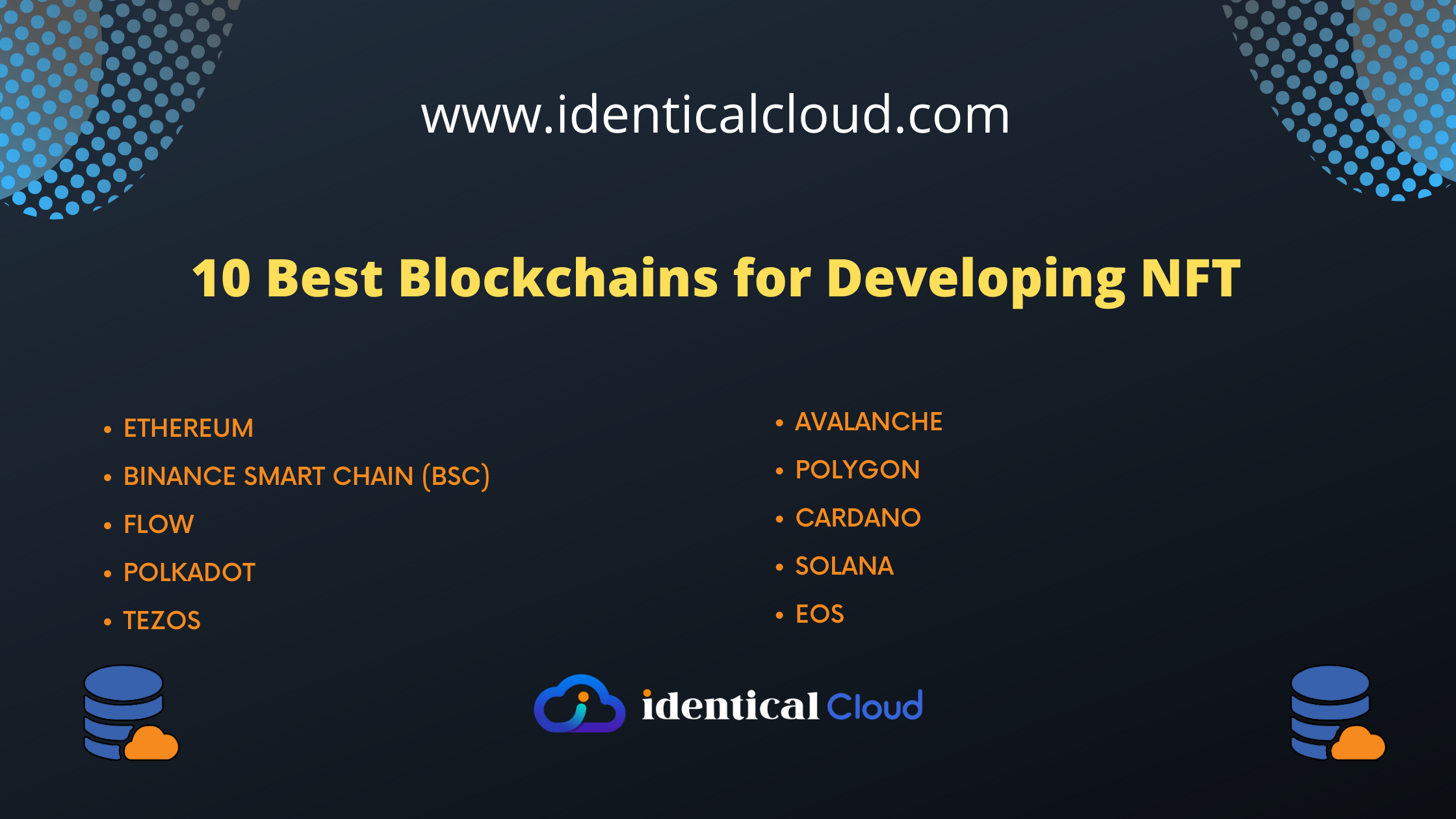
10 Best Blockchains for Developing NFT
10 Best Blockchains for Developing NFT
The rise of non-fungible tokens (NFTs) has brought a new level of excitement to the blockchain industry. NFTs are unique digital assets that are stored on a blockchain, and they are being used for a variety of purposes, such as digital art, gaming, and collectibles. With the growing interest in NFTs, it’s important to know which blockchains are best for developing NFTs. In this blog, we will look at the ten best blockchains for developing NFTs.
Ethereum
Ethereum is the most popular blockchain for developing NFTs. It has a large developer community and supports a wide range of programming languages. Ethereum is also home to the ERC-721 and ERC-1155 token standards, which are specifically designed for NFTs.
Binance Smart Chain (BSC)
Binance Smart Chain is a fast and low-cost blockchain that is compatible with Ethereum. It offers high-speed transactions and low fees, making it an attractive option for developing NFTs. BSC also supports the BEP-721 and BEP-1155 token standards, which are similar to Ethereum’s ERC-721 and ERC-1155 standards.
Flow
Flow is a blockchain developed by Dapper Labs, the company behind CryptoKitties. It is designed to handle high volumes of transactions and is specifically optimized for building NFT applications. Flow offers the Flow Token standard, which is designed for NFTs and allows for more complex NFTs than other token standards.
Polkadot
Polkadot is a blockchain platform that allows for interoperability between different blockchains. It offers high scalability and is ideal for building NFT applications that require cross-chain communication. Polkadot also supports the development of custom parachains, which can be used to create unique NFT applications.
Tezos
Tezos is a self-amending blockchain that offers on-chain governance and formal verification. It is ideal for building secure and reliable NFT applications. Tezos also offers the FA2 token standard, which is specifically designed for NFTs.
Avalanche
Avalanche is a high-performance blockchain that offers sub-second transaction finality and low fees. It is compatible with the Ethereum Virtual Machine (EVM), making it easy to develop NFT applications. Avalanche also offers the X-Chain token standard, which is designed for NFTs.
Polygon
Polygon is a Layer 2 scaling solution for Ethereum that offers fast and cheap transactions. It supports the Ethereum Virtual Machine (EVM) and is ideal for building NFT applications that require fast and inexpensive transactions. Polygon also supports the ERC-721 and ERC-1155 token standards.
Cardano
Cardano is a third-generation blockchain that offers high security, scalability, and sustainability. It is ideal for building NFT applications that require high levels of security and scalability. Cardano also supports the creation of custom tokens, which can be used to create NFTs.
Solana
Solana is a high-performance blockchain that offers sub-second transaction finality and low fees. It is ideal for building NFT applications that require high throughput and low latency. Solana also supports the SPL token standard, which is designed for NFTs.
EOS
EOS is a blockchain platform that offers high scalability and low latency. It is ideal for building NFT applications that require high throughput and low transaction fees. EOS also supports the creation of custom tokens, which can be used to create NFTs.
Conclusion
In conclusion, there are several blockchains available for developing NFTs, each with its unique features, advantages, and limitations. Ethereum, Binance Smart Chain, and Flow are some of the most popular blockchains for developing NFTs due to their developer community, token standards, and high throughput. However, other blockchains such as Polkadot, Tezos, Avalanche, Polygon, Cardano, Solana, and EOS also offer distinct advantages and can be ideal for specific NFT projects. It’s important to choose the right blockchain for your NFT project based on your requirements, budget, and development expertise. With the right blockchain, developers can create high-quality NFTs that can be used for digital art, gaming, and collectibles, and tap into the growing market of NFT enthusiasts.
